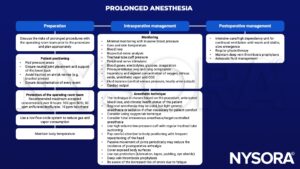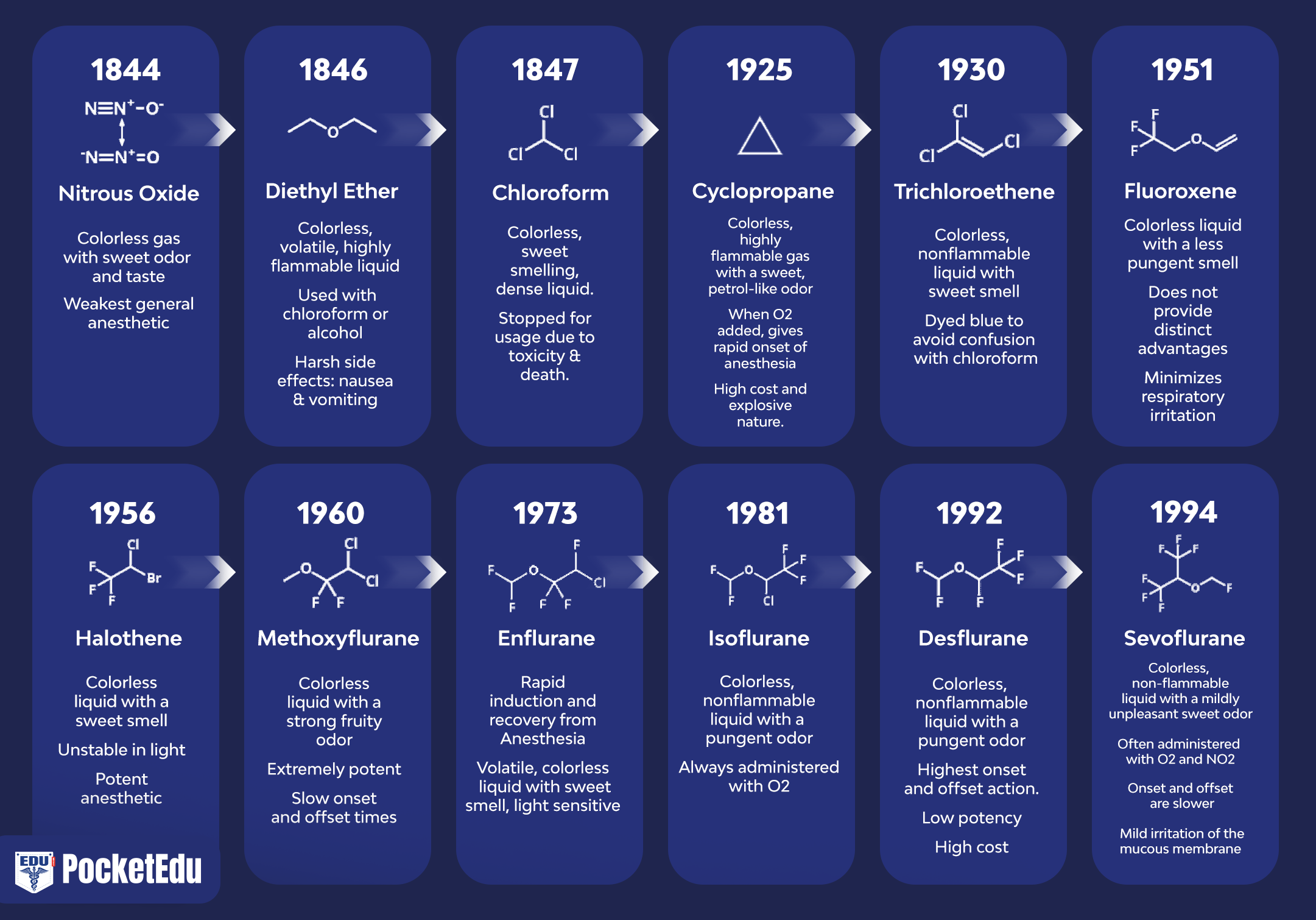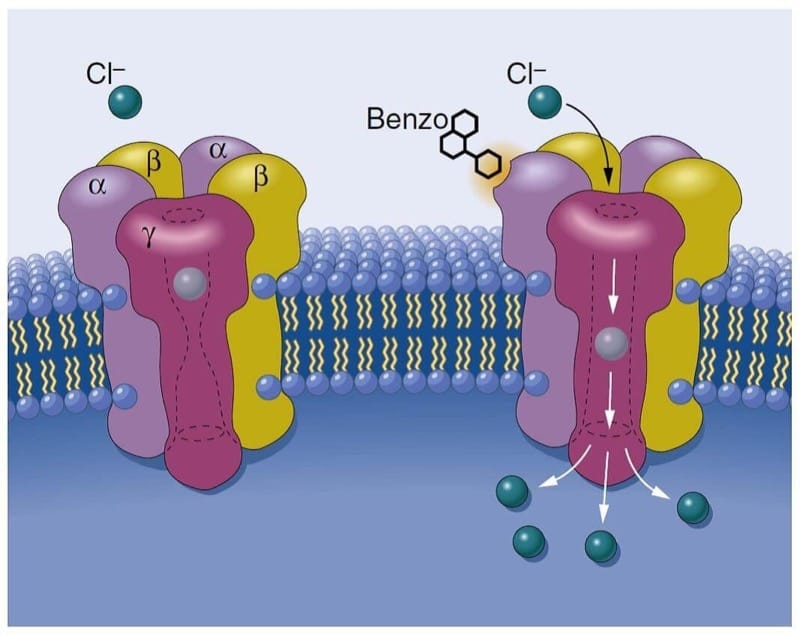Learning objectives
- Describe the possible consequences of prolonged anesthesia
- Manage patients scheduled for prolonged anesthesia
Background
- Prolonged anesthesia is associated with an increased risk of postoperative complications
- Careful preparation, management, and attention to detail reduce these risks
Negative effects of prolonged anesthesia
-
- Accumulation of anesthetic agents leads to delayed emergence, depending of the pharmacokinetics of the agent used (e.g., isuflurane>desflurane, fentanyl>remifentanil)
- Potential toxicity of anesthetic agents
- Degradation of inhalational agents by CO2 absorber may lead to accumulation of toxins (e.g., sevoflurane tp compound A)
- Inorganic fluoride production from the hepatic metabolism of sevoflurane and enflurane may be nephrotoxic in patients with chronic renal impairment
- Prolonged exposure to nitrous oxide may result in acute vitamin B12 deficiency with megaloblastic anemia and neurological deficit
- Impairment of gas exchange and respiratory mechanics (hypoxemia and hypercarbia secondary to slowly developing dependent atelectasis
- The effects of anesthetic agents on renal function can lead to water and salt retention
- Disturbances in intermediary carbohydrate metabolism promote the development of metabolic acidosis
- Retention of anesthetic agents in the body can lead to undesired effects postoperatively
- Decreased carbohydrate metabolism results in intraoperative hyperglycemia
- Problems with accurate fluid and electrolyte management
- Inadvertent perioperative hypothermia can lead to:
- Increased wound infection
- Surgical bleeding
- Impaired immune function
- Increased incidence of myocardial ischemia and infarction
- Malignant arrhythmias
- Postoperative shivering
- Prolonged immobility can lead to:
- Increased risk of deep vein thrombosis
- Nerve damage and pressure sores
- Bilateral compartment syndrome
- Rhabdomyolysis
- Corneal damage if the eyes are left open
- Postoperative delirium
- Immunosuppression and increased susceptibility to infections
- Increased risk of human error due to fatigue
Management

Suggested reading
- Pollard BJ, Kitchen, G. Handbook of Clinical Anaesthesia. Fourth Edition. CRC Press. 2018. 978-1-4987-6289-2.
- Cheng H, Clymer JW, Po-Han Chen B, et al. Prolonged operative duration is associated with complications: a systematic review and meta-analysis. J Surg Res. 2018;229:134-144.
We would love to hear from you. If you should detect any errors, email us [email protected]








